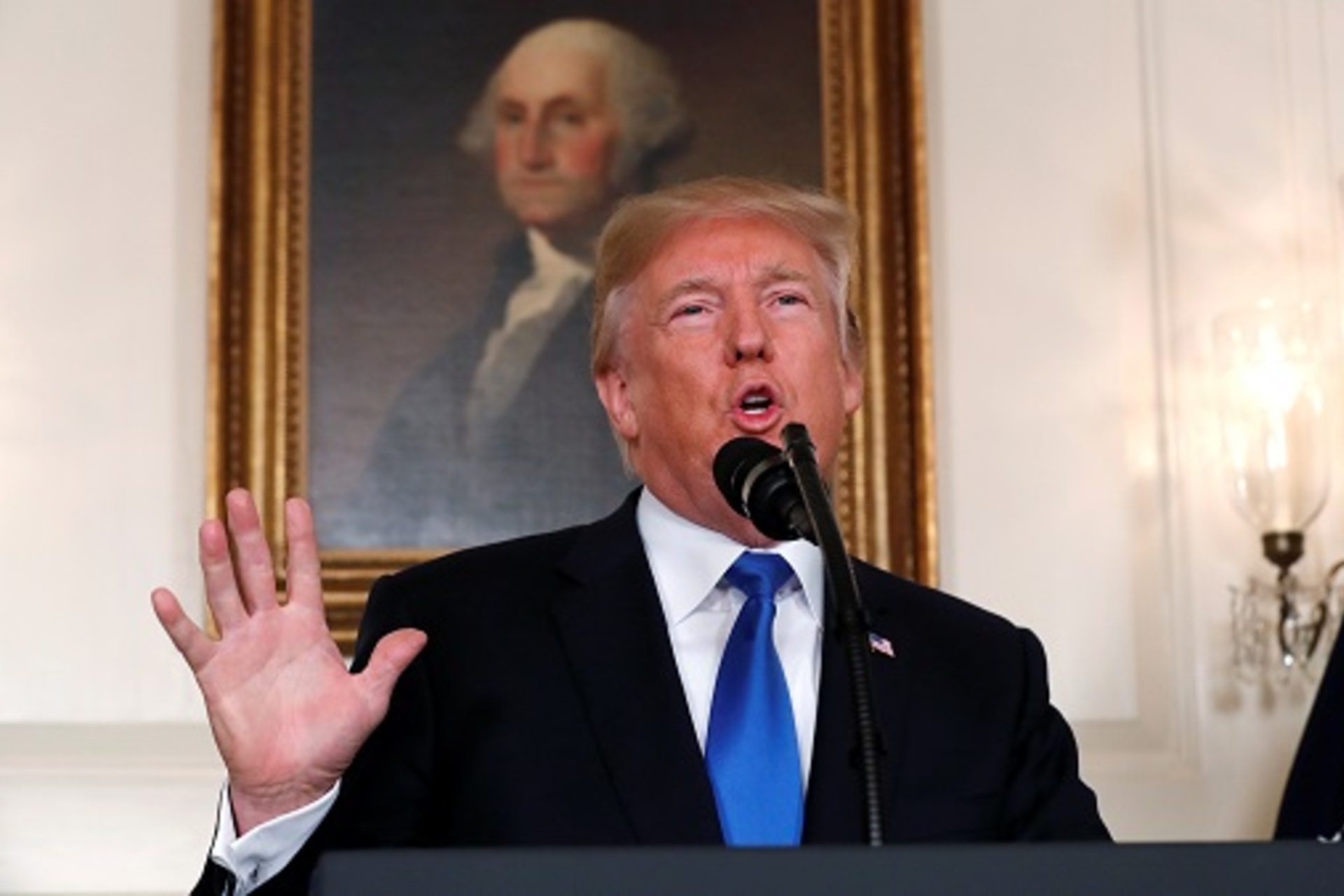The Iran Deal Saga Continues

By experts and staff
- Published
By
- Guest Blogger for James M. Lindsay
An important legislative deadline passed last week in Washington without much mention. You might remember that back on October 13, President Donald Trump announced he would not certify that Iran was complying with the Joint Comprehensive Plan of Action, or the Iran nuclear deal as it is more commonly known. Trump’s decision triggered a provision of the 2015 Iran Nuclear Agreement Review Act (INARA) giving congressional leaders sixty days to submit legislation to re-impose sanctions on Iran or even torpedo the agreement. Legislation submitted during the sixty-day window would receive expedited consideration. That window closed last Wednesday. Benjamin Shaver, who interned for me this semester, discusses the consequences of the passing of the deadline.
INARA recognized that a president might determine that Iran was not complying with the nuclear deal. If that happened, the act stipulated that the majority and minority leaders in the House or the Senate would have sixty days to introduce legislation to reintroduce U.S. sanctions on Iran. Under the terms of INARA, any motion that congressional leaders introduced would be given expedited consideration, meaning that the typical legislative maneuvers used to delay or block legislation could not be used. Just as important, no other members of Congress could submit legislation on Iranian sanctions during the sixty-day window.
INARA’s sixty-day window closed at midnight last Wednesday, December 13, without leaders on either side of the aisle submitting legislation. It’s not surprising that Democratic leaders stood pat. They say the deal is working. It’s more surprising that neither House nor Senate Republican leaders introduced a bill to punish Iran for what Trump said was Tehran’s noncompliance. After all, they had been critical of the deal since it was unveiled, and Trump leads their party. Of course, Republican leaders have been busy trying to pass a tax reform bill.
Now that the sixty-day window has closed, any member of Congress can submit a bill to re-impose sanctions on Iran. Two senators who just might do that are Bob Corker (R-TN) and Tom Cotton (R-AR). On the same day that Trump declined to certify, Corker and Cotton announced a plan to fix what they saw as the Iran deal’s flaws. Their plan hasn’t gone anywhere over the last two months, at least not publicly; it remains just a fact sheet on Corker’s website.
Here’s the rub. Even if Corker and Cotton do submit a bill based on their plan, it won’t receive expedited consideration. It would face the same obstacles that any bill faces once it is submitted, including a Senate filibuster. Corker and Cotton would need to round up sixty votes in the Senate to stop inevitable Democratic efforts to derail the legislation. With Republicans holding just fifty-two seats—fifty-one once Doug Jones of Alabama is sworn in—sixty will be a tough number to reach. It won’t help that some Republican senators were skeptical, at least initially, of the Corker-Cotton approach. They worry that it would antagonize European allies and that it would be wiser to try and pass legislation that would impose sanctions on Iran for its ballistic missile program and support for terrorism.
What does all this mean? Congress isn’t likely to pass new Iran-related legislation any time soon, if ever. So the ball is now back in Trump’s court. If he wants to re-impose sanctions on Iran, he will have to do it himself. The good news for the White House is that the president has the power to do just that. All he has to do is stop signing executive orders waiving the sanctions that were suspended once the Iran nuclear deal went into effect. He has waived them twice so far in his presidency, most recently in September. The sanctions can be waived for up to 120 days, which means Trump will have to decide whether to waive them again before January 12. Mark that date on your calendar. It’s going to be important.